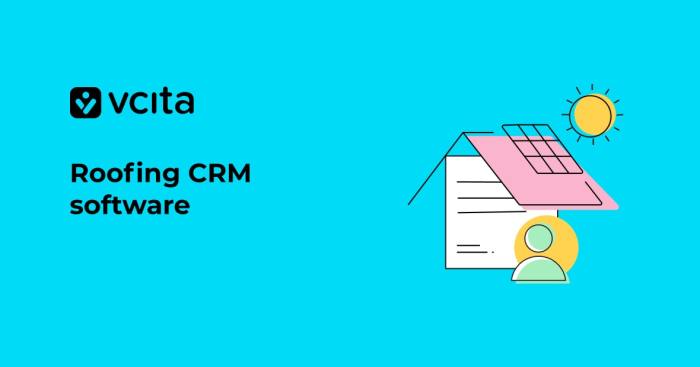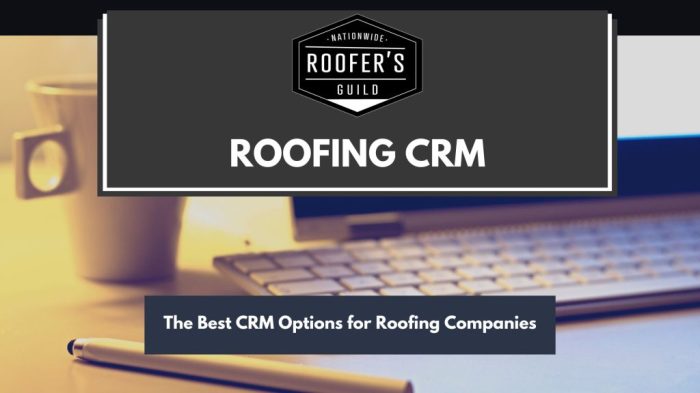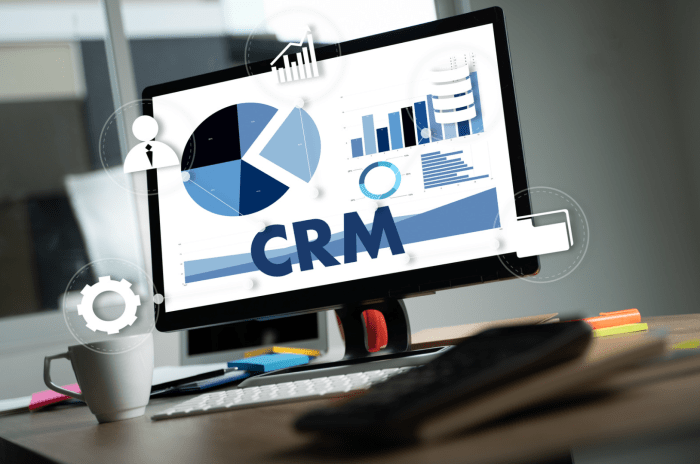Crm software for roofing – In today’s competitive roofing industry, efficient lead management and customer relationship nurturing are paramount to success. This is where Customer Relationship Management (CRM) software steps in, offering a powerful solution to streamline operations, boost sales, and enhance customer satisfaction. This comprehensive guide delves into the specifics of CRM software tailored for roofing companies, exploring its benefits, features, and implementation strategies.
We’ll also address frequently asked questions and provide insights to help you choose the best CRM for your roofing business.
Understanding the Need for CRM in Roofing
Roofing businesses, whether large or small, face unique challenges. Managing leads, scheduling jobs, tracking progress, and maintaining communication with clients can become overwhelming without a structured system. A dedicated CRM system addresses these challenges by centralizing all customer interactions and operational data. This allows for better organization, improved efficiency, and ultimately, increased profitability. Key areas where a roofing CRM excels include:
Lead Management and Conversion, Crm software for roofing
- Lead Capture and Qualification: Efficiently capture leads from various sources (website forms, phone calls, referrals) and qualify them based on project size, budget, and urgency.
- Lead Nurturing: Automate follow-up communications, sending personalized emails, text messages, or even automated phone calls to keep leads engaged throughout the sales cycle.
- Lead Scoring: Prioritize high-potential leads based on predefined criteria, ensuring sales teams focus on the most promising opportunities.
- Sales Pipeline Management: Visualize the sales process, track the progress of each lead, and identify potential bottlenecks.
Project Management and Scheduling
- Job Scheduling and Dispatching: Optimize crew scheduling, minimizing travel time and maximizing efficiency. Integrate with GPS tracking for real-time location updates.
- Progress Tracking: Monitor the progress of each roofing project, ensuring timely completion and preventing delays.
- Resource Allocation: Manage materials, equipment, and personnel effectively, minimizing waste and optimizing resource utilization.
- Document Management: Store and access all project-related documents (contracts, estimates, permits) in a centralized location.
Customer Communication and Service
- Centralized Communication: Maintain a complete history of all interactions with each client, ensuring consistent and personalized communication.
- Automated Communication: Send automated appointment reminders, project updates, and thank-you messages to enhance customer experience.
- Customer Support Ticketing: Efficiently manage customer inquiries and resolve issues promptly, improving customer satisfaction and loyalty.
- Customer Feedback Collection: Gather customer feedback through surveys and reviews to improve services and identify areas for improvement.
Reporting and Analytics
- Sales Performance Tracking: Monitor key performance indicators (KPIs) such as lead conversion rates, sales revenue, and customer acquisition costs.
- Project Profitability Analysis: Analyze the profitability of individual projects and identify areas for cost optimization.
- Customer Segmentation: Group customers based on demographics, purchasing behavior, or other criteria for targeted marketing campaigns.
- Customizable Reports: Generate customized reports to track progress, analyze performance, and make data-driven decisions.
Choosing the Right CRM for Your Roofing Business: Crm Software For Roofing
Selecting the appropriate CRM depends on your specific needs and budget. Consider the following factors:
- Scalability: Choose a CRM that can grow with your business, accommodating increasing numbers of leads and projects.
- Integration Capabilities: Ensure the CRM integrates with other essential business tools, such as accounting software, scheduling apps, and marketing automation platforms.
- User-Friendliness: Opt for a CRM with an intuitive interface that is easy for your team to learn and use.
- Mobile Accessibility: Choose a CRM that is accessible from mobile devices, allowing your team to stay connected on the go.
- Customer Support: Ensure the CRM provider offers reliable customer support and training resources.
- Pricing: Compare pricing plans from different vendors to find a solution that fits your budget.
Popular CRM Options for Roofing Companies
Several CRM platforms offer features specifically designed for roofing businesses. Researching options like HubSpot, Salesforce, Zoho CRM, and dedicated construction CRMs will reveal features relevant to your business size and needs. Each platform offers varying levels of customization and integration capabilities. Consider the size of your business and future growth projections when making your selection.
Implementing and Optimizing Your Roofing CRM
Successful CRM implementation requires careful planning and execution. Key steps include:
- Data Migration: Transfer existing customer data into the new CRM system accurately and efficiently.
- User Training: Provide comprehensive training to your team on how to use the CRM effectively.
- Process Automation: Automate repetitive tasks such as email marketing and appointment scheduling to free up time for more strategic activities.
- Regular Monitoring and Optimization: Continuously monitor the CRM’s performance and make adjustments as needed to ensure optimal efficiency.
Frequently Asked Questions (FAQ)
- Q: How much does roofing CRM software cost? A: The cost varies widely depending on the features, the number of users, and the provider. Expect to find options ranging from free plans with limited features to enterprise-level solutions with higher monthly or annual fees.
- Q: Can a CRM help me improve customer satisfaction? A: Absolutely! By centralizing communication and providing a seamless customer experience, a CRM significantly improves customer satisfaction and loyalty.
- Q: Does a CRM integrate with other software I use? A: Most reputable CRMs offer integrations with popular business tools, including accounting software, scheduling apps, and marketing automation platforms. Check the specific integrations offered by your chosen CRM.
- Q: How long does it take to implement a CRM? A: The implementation time varies depending on the size of your business and the complexity of the CRM system. It can range from a few weeks to several months.
- Q: What are the key performance indicators (KPIs) to track with a roofing CRM? A: Key KPIs include lead conversion rate, average deal size, customer lifetime value, sales cycle length, and customer churn rate.
Conclusion
Investing in the right CRM software is a strategic move for any roofing business looking to enhance efficiency, boost sales, and improve customer relationships. By carefully considering your needs and choosing a system that aligns with your goals, you can unlock significant improvements in your operations and achieve sustainable growth. Don’t hesitate to explore the options available and embrace the power of technology to transform your roofing business.
Call to Action
Ready to take your roofing business to the next level? Contact us today for a free consultation and let us help you find the perfect CRM solution to meet your specific needs. We’ll guide you through the selection process and ensure a smooth implementation, setting you up for success in the competitive roofing industry.

Source: vcita.com
Common Queries
What are the key features to look for in roofing CRM software?

Source: roofersguild.com
Essential features include lead management, job scheduling, customer communication tools, reporting and analytics, and integration with other business software.
How much does roofing CRM software typically cost?
Pricing varies greatly depending on the features, number of users, and provider. Expect to find options ranging from affordable monthly subscriptions to more comprehensive enterprise solutions.

Source: centerpointconnect.com
Can CRM software integrate with my existing accounting software?
Many CRM systems offer integration capabilities with popular accounting software, allowing for seamless data transfer and financial reporting.
How long does it take to implement a roofing CRM system?
Implementation time varies, but expect a period of setup, data migration, and employee training, potentially spanning several weeks.
What kind of training is needed to use roofing CRM software?
Most providers offer training resources, including tutorials, documentation, and sometimes dedicated onboarding support.
